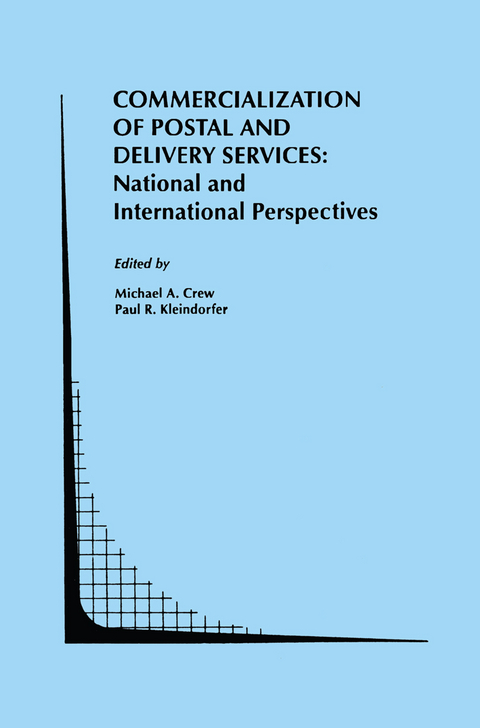
Commercialization of Postal and Delivery Services: National and International Perspectives
Springer (Verlag)
978-0-7923-9514-0 (ISBN)
1 A Review of Efforts to Develop a New Policy Framework for Postal Services in the European Union.- 2 Deregulation of Australia's Postal Services.- Comments.- 3 The Application of Legal Safeguards Against Predation to the Postal Services Industry.- 4 Measuring the Performance of the Public Postal Service Provider in Germany.- 5 Measuring Quality of Service of International Mail.- 6 Post-Appointment Preference Shaping and Its Influence on Judicial Analysis of Economic Regulation Issues.- 7 A Consumers' Group's View of New Services, Quality, and Regulation.- 8 Pricing in Postal Service under Competitive Entry.- 9 An Econometric Model of Postal Delivery.- 10 The Scope of the Reserved Area.- 11 Price Caps for Postal Service.- 12 Use of Technology Arising from Customers’ Needs.- 13 On the Structure of Inter-Firm Postal Demand.- 14 Analysis of Economies of Scale in Small Package Carrier Service in Japan.- 15 Replacement of Letter Mail by Electronic Communications to the Year 2010.- 16 Regulation of Unregulated Firms: The Postal Service and UPS.- 17 Alternative Scenarios for the Reform of Postal Services: Optimal Pricing and Welfare.- 18 Aggregate Letter Traffic Demand in the United Kingdom and the Economy.
| Erscheint lt. Verlag | 30.11.1994 |
|---|---|
| Reihe/Serie | Topics in Regulatory Economics and Policy ; 19 |
| Zusatzinfo | XVII, 284 p. |
| Verlagsort | Dordrecht |
| Sprache | englisch |
| Maße | 155 x 235 mm |
| Themenwelt | Sozialwissenschaften ► Kommunikation / Medien ► Journalistik |
| Wirtschaft ► Betriebswirtschaft / Management ► Planung / Organisation | |
| Wirtschaft ► Betriebswirtschaft / Management ► Unternehmensführung / Management | |
| Wirtschaft ► Volkswirtschaftslehre ► Mikroökonomie | |
| ISBN-10 | 0-7923-9514-X / 079239514X |
| ISBN-13 | 978-0-7923-9514-0 / 9780792395140 |
| Zustand | Neuware |
| Haben Sie eine Frage zum Produkt? |
aus dem Bereich


